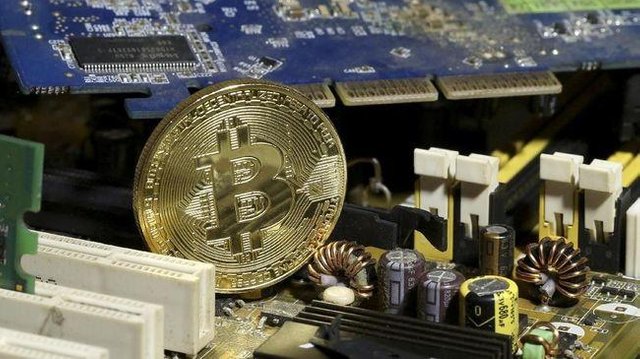Tax and Blockchain Technology Behind Bitcoin
** Bitcoin ** is one of the warmly discussed forms of cryptocurrency. Many are addressing this bitcoin phenomenon with enthusiasm and many who respond with caution. But no less interesting is the underlying technology and enabling this bitcoin phenomenon to occur. Is a blockchain, a technology that some considered more powerful than artificial intelligence technology.
** Blockchain **
Satoshi Nakamoto, in his article entitled "Bitcoin: A peer to peer Electronic Cash System", proposed a protocol design in a "digital money" transaction. In a very simple explanation, the proposed protocol states that a digital money basically carries a record file on the history of its displacement - a bloc or ledger that records all transactions that have taken place.
What makes this system great is when digital money is successfully validated, ledger or transaction records are distributed to all parties in the system in a transparent manner. Thus, all parties in the system will know that the transaction is successfully executed. Outsmarting the system by making counterfeit money will be rejected because everyone in the system has a record of every valid transaction.
New money can be created by mobilizing computing power to search for encryption and validate transactions that have taken place, generate new blocks, and redistribute them to the system. This is called mining. The opportunity to generate new digital money with mining has a much greater probability than creating new money by rigging the system. That way, in the end the recipient can be sure with certainty that the digital money he receives is valid.
Bitcoin (and other cryptocurrencies) is a product born from the protocol created by Satoshi Nakamoto, the blockchain. This technology is currently in the same phase as when the new Internet was created in the 70s by Arpanet. It is still difficult to realize how far the implications of blockchain technology will affect our lives ahead.
Blockchain is expected to create a new platform for the digital world, a new disruption. The presence of blockchain technology can cut middleman in an economic transaction. The centralized payment transactions through banks are expected to be affected by direct peer-to-peer transactions using this technology.
In some countries, the government began to use blockchain technology in their identity management and digital voting. In addition, blockchain is expected to be utilized in the process of buying and selling valuable assets in general such as land, buildings, and motor vehicles where the form of ownership is in the form of a digital certificate.
** Blockchain and Tax **
Blockchain is expected to be a highly disruptive technology in the next 5 to 10 years, both for business and government. Evidently some countries are beginning to take advantage of this technology. Pricewaterhouse Coopers UK released a report on how tax authorities can utilize blockchain technology in its administrative system. This report is the result of discussions of experts in the field of taxation and blockchain technology. Issues such as transparency, accuracy, and availability of data for tax authorities are raised in this report.
Indonesia is one country with a low GDP tax ratio (around 11%) compared to developed countries whose ratios can reach above 30 percent. Directorate General of Tax (DGT) as the tax authority, in recent years difficulty to meet the target of national tax revenue. This has an impact on the availability of funds for infrastructure development and national program financing.
One of the obstacles to low tax revenues is low levels of community participation. There are still many taxpayers who do not report their earnings properly, are not registered as, and the government has not been able to create a system that can detect and provide a deterrent effect equally and evenly to every taxpayer.
Blockchain can help the government by providing a citizen identity platform. Encrypted identity data, in addition to being used as a digital identifier for government services such as health and education, can also be used for tax purposes.
This information will not be stored centrally as traditional databases, so vulnerability to cyber attacks can be eliminated. With a single identity, governments that have legitimate access under the law can monitor the economic activities of the taxpayers.
Taxes on transactional activities such as Value Added Tax (VAT) can also be traced at each level of the production chain digitally in the presence of distributed ledger sitsem in the blockchain. Transactions can be tracked transparently and can be easily identified and eliminate fraud.
With these data, the income taxpayer can be estimated with a high degree of accuracy. This data can be paired with taxpayers' SPT reporting so that it can be assessed for compliance level. In this way, it is expected that the level of public participation in paying taxes may increase.
In addition to utilizing blockchain technology, the government, especially the tax authorities must be able to anticipate the changes brought by this blockchain technology. The shift to the digital economy needs to be accompanied by up-to-date tax rules. The limitations of government jurisdiction in taxing will be increasingly obscured by an increasingly global and digital economy.
Internet progress has brought ease and speed in information exchange. Blockchain will lead us to move forward with the exchange of valuable information such as money, assets, and other financial data. It is time the government began to see the potential that can be utilized from this technology. One of the crucial sectors that can take advantage of this technology is taxation.
Follow me @cekblack
